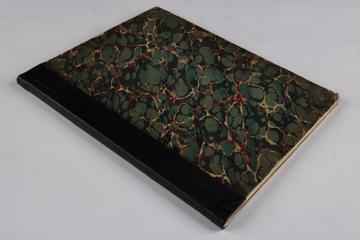
Smith, Archibald 1813 - 1872
- Nationality:
- Scottish; British
(1813-1872), mathematician
Archibald Smith, born on the 10th August 1813 at Greenhead, Glasgow entered Glasgow University in 1828 and distinguished himself in classics, mathematics, and physics. He proceeded to Trinity College, Cambridge, in 1832, graduated BA in 1836 and MA in 1839. In 1836 he was senior wrangler and first Smith's prizeman and was elected a fellow of Trinity College. He entered Lincoln's Inn on 24 May 1836 and was called to the bar on 25 January 1841. He practised for many years as an equity draughtsman in Stone Buildings, Lincoln's Inn, and became an eminent property lawyer.
In November 1837, Smith helped to found the Cambridge Mathematical Journal. Between 1842 and 1847, at the request of General Sir Edward Sabine, he deduced from Poisson's general equation practical formulae for the correction of observations made on board ship, which Sabine published in the Philosophical Transactions of the Royal Society. In 1851 he deduced convenient tabular forms from the formulae, and in 1859 he edited the Journal of a Voyage to Australia, by William Scoresby the younger, giving in the introduction an exact formula for the effect of the iron of a ship on the compass, a problem with which Scoresby had been preoccupied, but had failed to solve. Smith was also the author of Supplement to the practical rules for ascertaining the deviations of the compass caused by the ship's iron (1855) and A graphic method of correcting the deviations of a ship's compass (1855). In 1862, in conjunction with Sir Frederick John Owen Evans, superintendent of the compass department of the Royal Navy, he published an Admiralty manual for ascertaining and applying the deviations of the compass caused by the iron in a ship. This work was translated into French, German, Russian, and Spanish.
In recognition of his services Smith received the honorary degree of LLD from the University of Glasgow in 1864, and in the following year was awarded a gold medal by the Royal Society, of which he had been elected a fellow on 5 June 1856. In 1872 he received a grant of £2000 from the government. In addition, he received a gold compass set with thirty-two diamonds from the tsar of Russia, and was elected a corresponding member of the scientific committee of the imperial Russian navy.
In August 1853 Smith had married Susan Emma (d. 1913) They had six sons and two daughters. His fourth son, Arthur Hamilton Smith (1860–1941), was keeper of Greek and Roman antiquities at the British Museum, while his eldest son, James Parker Smith, was MP for the Partick division of Lanarkshire. Sir Henry Babington Smith was a younger son. Archibald Smith had once stood as the Liberal candidate for Glasgow but was unsuccessful. He died at his London home at Riverbank, Putney, on 26 December 1872 and was buried in Kensal Green cemetery.